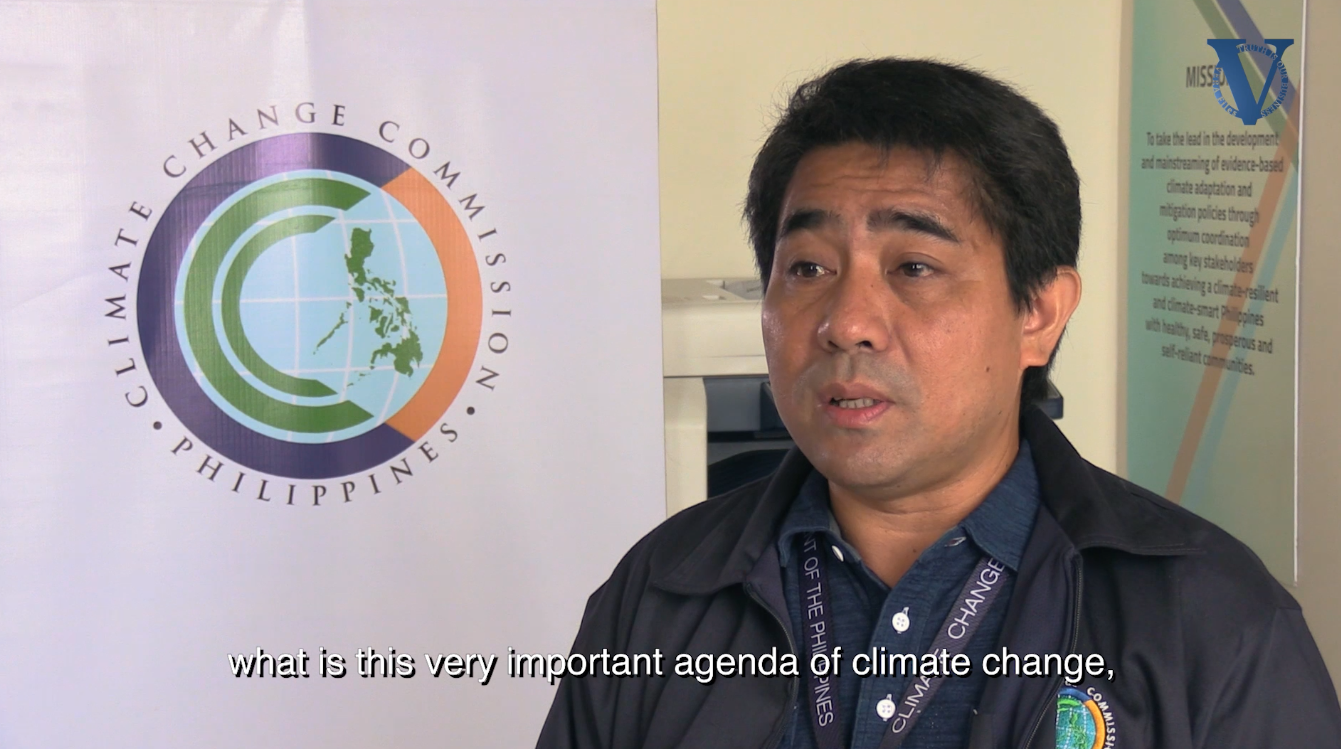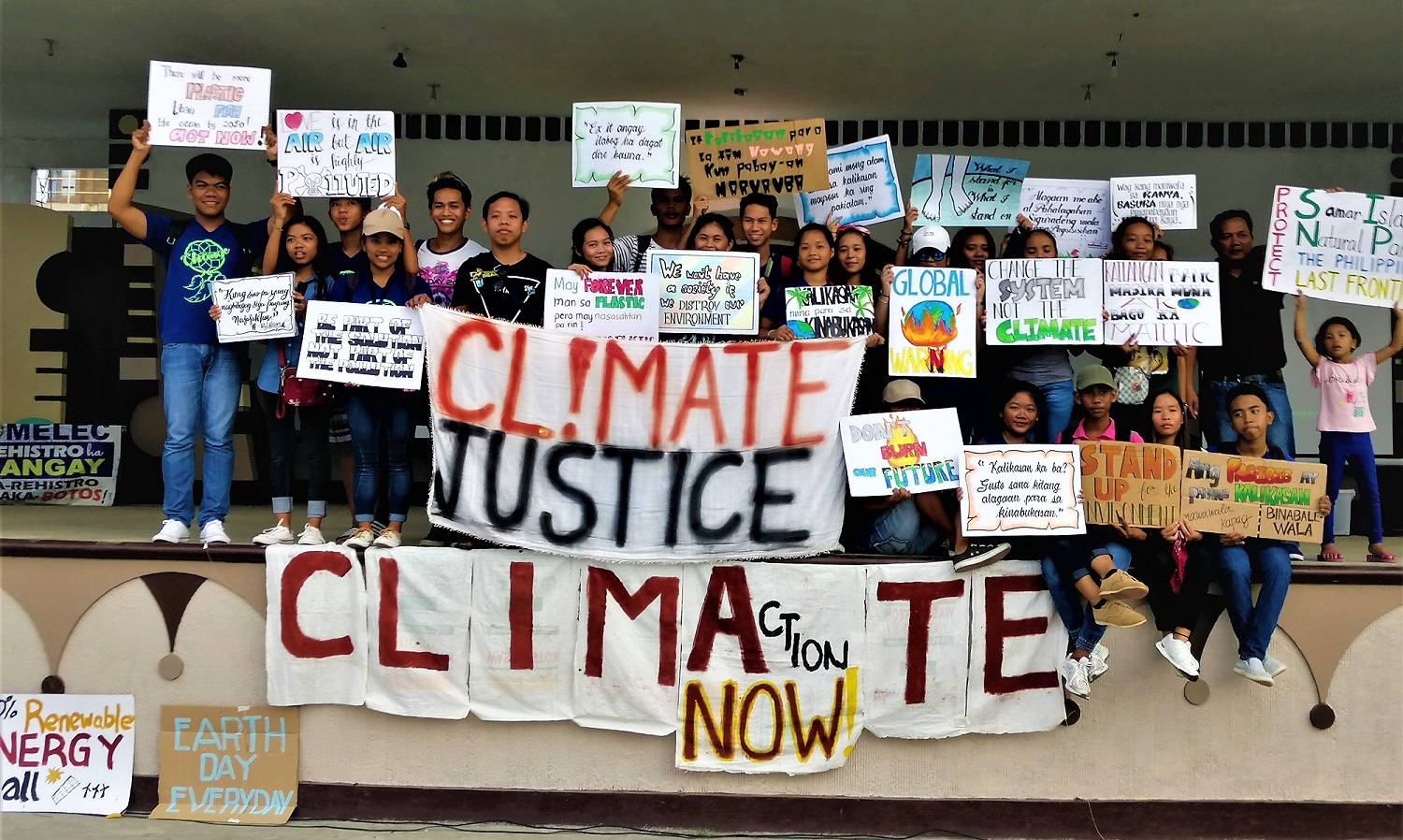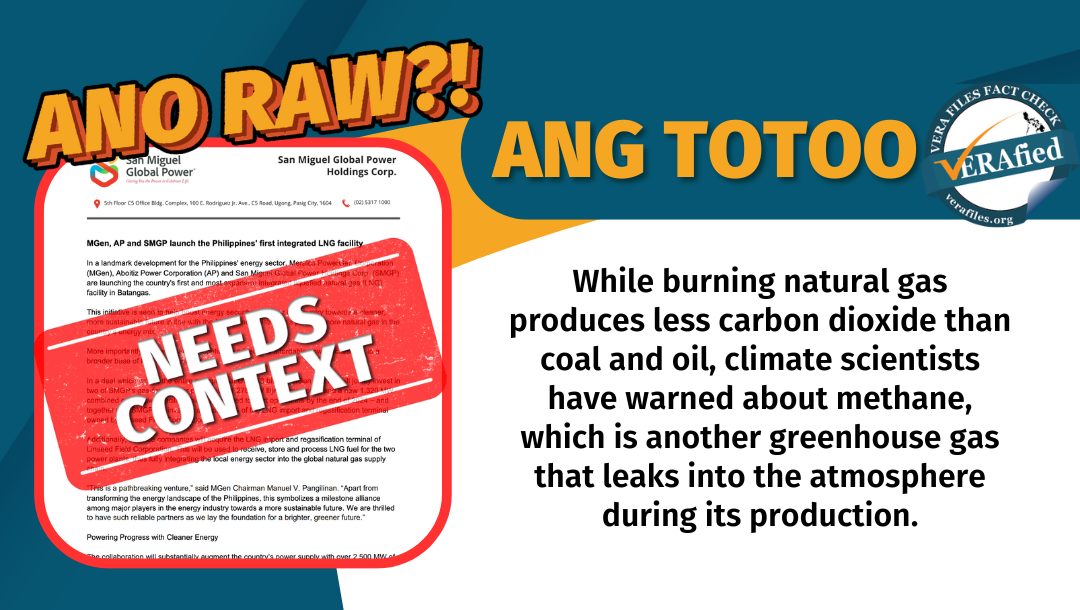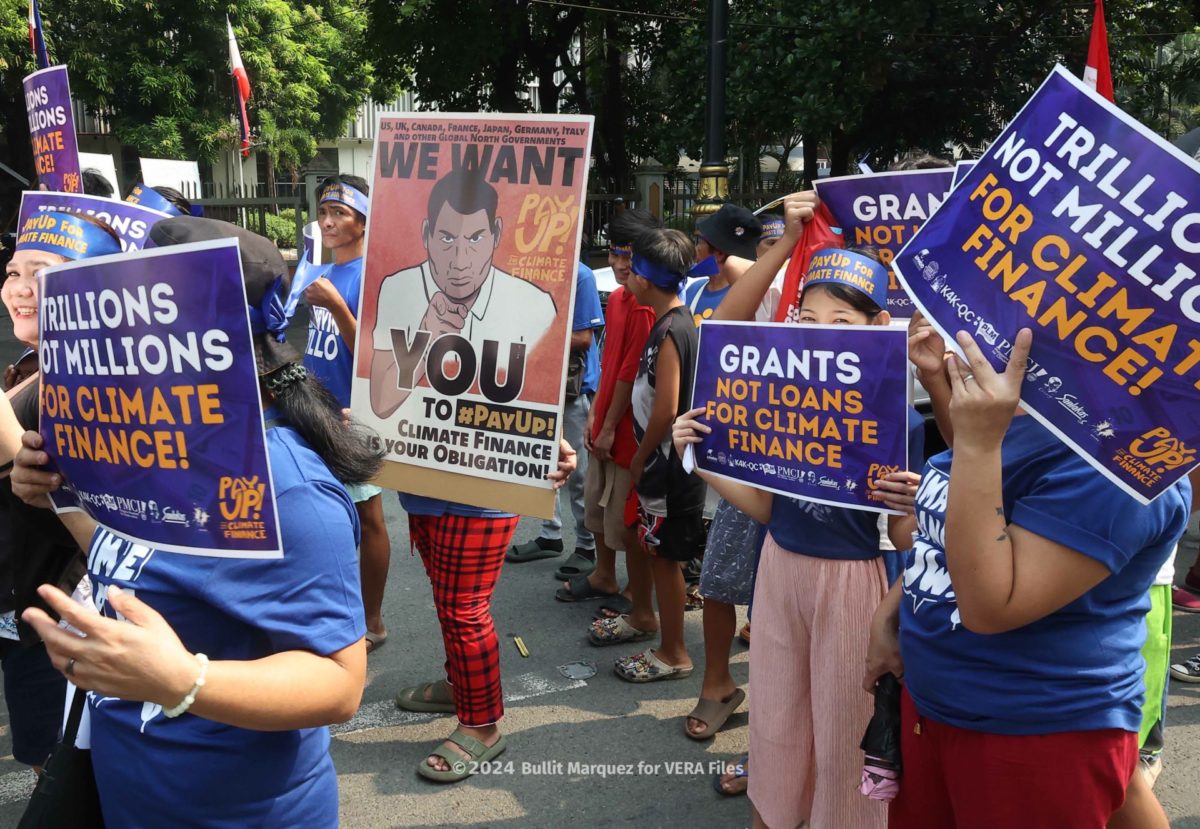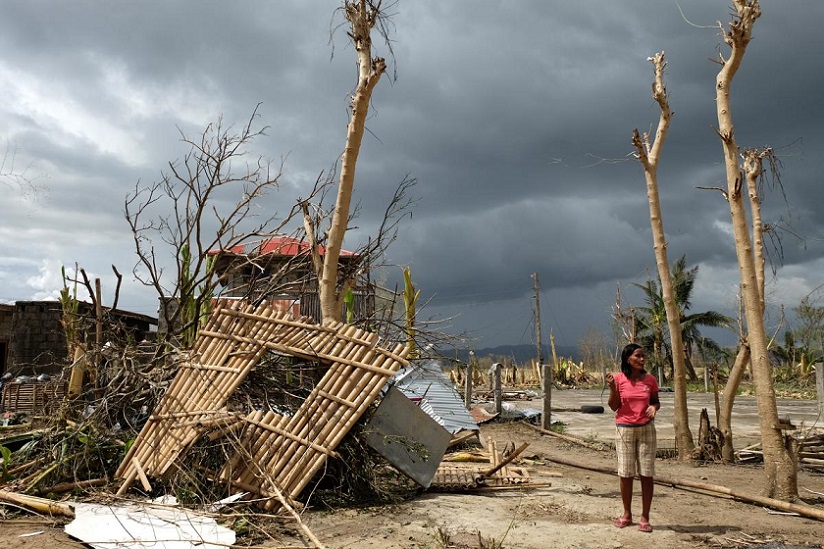
House debris in Brgy. Pagbangkeruan in the town of Alcala, Cagayan province hit by typhoon Ompong (Mangkhut). Photo by AC Dimatatac, Institute for Climate Change and Sustainable Cities.
The number of tropical cyclones entering the Philippines is slightly decreasing, but their intensity is “becoming stronger,” according to Dr. Rosa Perez, the sole Filipino lead author of a landmark United Nations scientific report released recently by the Intergovernmental Panel on Climate Change (IPCC).
At least one very strong tropical cyclone is expected to hit the country every year, warned Perez, citing a 2018 climate report of the Philippine Atmospheric, Geophysical and
Astronomical Services Administration. (PAGASA).
Specifically, the PAGASA report said the “slight decrease in the number of tropical cyclones and a minimal increase in the frequency of very strong tropical cyclones (exceeding 170 kph) had been observed over the Philippine area of responsibility (PAR)” in the past 65 years (1951 to 2015) and that such trends were expected to continue in the future.
Perez presented the key findings of the 2018 PAGASA report (“Observed Climate Trends and Projected Climate Change in the Philippines”) as well as the highlights of the IPCC special report (“Global Warming of 1.5°C”) at a press briefing following the latter’s global launch on Oct.8.
“I also have uncovered that since 1947 to 2014, the commonality between many of these [tropical cyclones entering the country] is that they happened in 2000 and up. Now… in the 21st century, there are more intense cyclones, at least one per year,” she said.
“[From 1993 to 2015] the rate of sea level rise (SLR) in the Philippine Sea has doubled the global rate,” Perez added. “The projected SLR is 20 cm. and it could worsen the impact of the storm surge.”
Limiting global warming to 1.5 degrees Celsius (°C) throughout the 21st century could reduce great threats from extreme temperature and climate changes, and adverse effects on health, economic growth and resource security, according to the IPCC special report prepared by renowned climate scientists worldwide, including Perez.
“This 1.5°C special report is a turning point because it ends the debate on the global threshold that we must all strive for,” said Commissioner Rachel Anne Herrera of the Climate Change Commission (CCC). “We have seen more frequent flooding, extreme rainfall and, across the globe, heat waves followed by flooding, drought, and wildfires. Our call now is for nations to reflect on what the report says… and to push further alignment on national commitments to achieve this goal (1.5°C).”
In the Philippines, Perez noted that the temperature had increased by .1°C per decade over the years so that “by 2050, it’s clear that we will overshoot” the goal of keeping global warming at 1.5°C if this trend continues.
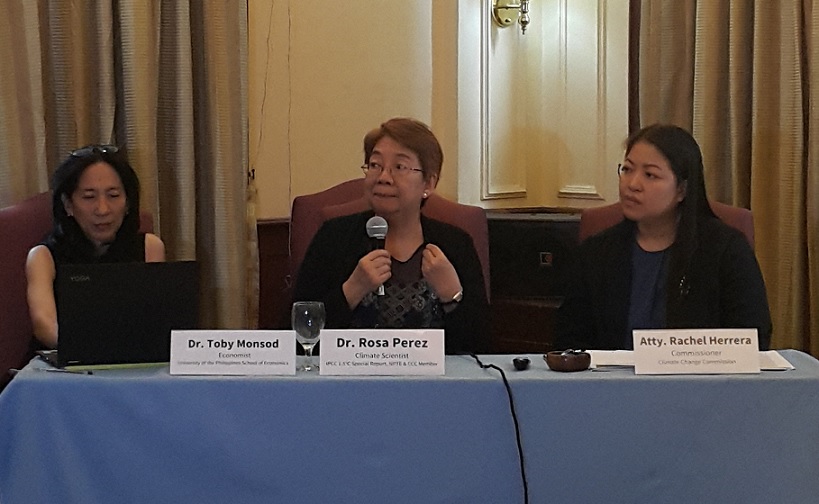
All women panel discusses the global impact of climate
change. From left, UP Professor Toby Monsod, author and climate change expert
Rosa Perez, Commissioner Rachel Anne Herrera of the Climate Change Commission.
The IPCC report warned that there would be more intense droughts if the world does not limit the temperature to 1.5°C instead of 2°C. About a million hectares of land are highly vulnerable to climate change. Most of those in the uplands are prone to fires due to extended periods of more intense drought and heat.
More public health concerns are expected to surface as higher temperatures can also trigger diseases, such as malaria and dengue.
According to the World Meteorological Organization (WMO) , 2015, 2016, and 2017 were the three warmest years on record. The year 2016 still holds the global record, while 2017 is the warmest year without El Niño.
The latest IPCC Assessment Report concluded that climate change will create new poor between now and 2100, adding that poverty breeds disaster vulnerability.
“Impacts on sustainable development, on poverty and reducing inequalities will be greater if we limit it (global warming) to 1.5°C. There are going to be losses, but we can minimize them,” said Dr. Toby Melissa Monsod, associate professor of University of the Philippines School of Economics.
The Philippines is expected to lose 6 percent of its gross domestic product (GDP) annually by 2100,based on a study of the Asian Development Bank (ADB) on the economics of climate change. If the country invests 0.5 percent GDP by 2020 in climate change adaptation, it can prevent up to 4% of its GDP by 2100, it said.
It projected declining rice yields of 10% for every 1°C increase in temperature. The maximum fish supply of the country is also expected to drop by 50% by the second half of the century.
Monsod stressed the IPCC report is only a guide and that other efforts have to be initiated to sustain the commitment to climate change.
“Empowering provinces and local governments is a necessary condition. A centralized approach is simply insufficient in this matter because the impacts are local, but you need the support of the national [body], so it’s an issue of assigning things,” she added.
Herrera said the report could provide the Philippines an “opportunity to pursue low carbon climate resilient development” – it means food systems, supply chains, water, energy systems, transport, infrastructure, and the like should provide ways to industrialize while ensuring fewer emissions of carbon dioxide into the atmosphere.”
“We transition into green industries, provide more green jobs for people, and attract climate finance,” she added.
For its part, the CCC would immediately share the IPCC special report to top government officials and other leaders across the country, said CCC Vice Chairperson Emmanuel De Guzman. “After the world’s top climate science body has spoken and advice all people of the world today… now [is the time] to declare the climate action in the context of climate justice as a moral imperative and that all must now work together as brothers and sisters of one humanity.”
This story is produced by VERA Files under a project supported by the Internews’ Earth Journalism Network, which aims to empower journalists from developing countries to cover the environment more effectively.
